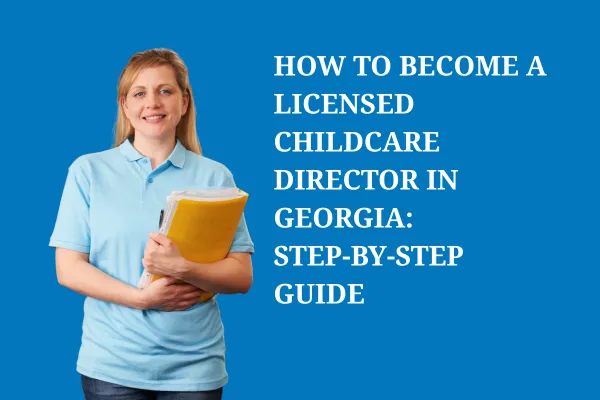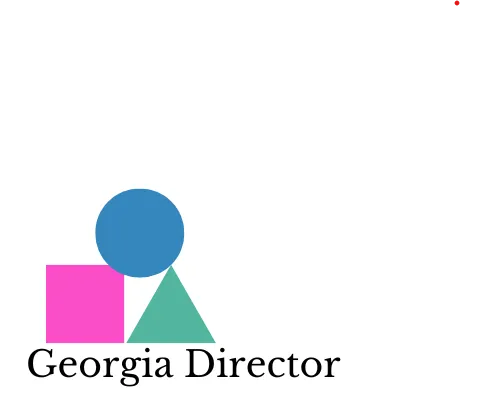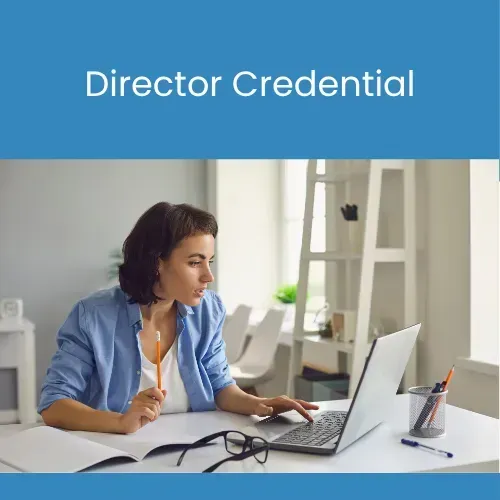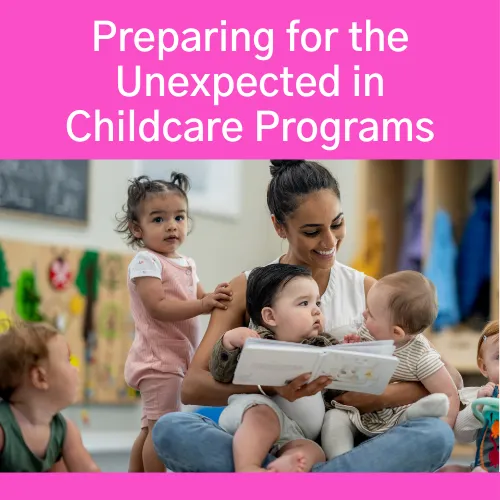Find Everything You Need.
Filter:
Filter:
See Our Latest Blogs
Stay up-to-date with our latest insights, tips, and trends by diving into our newest blogs. Whether you're seeking industry expertise, marketing strategies, or product inspiration, our blog section is your go-to resource for valuable content.

How to Become a Licensed Childcare Director in Georgia: Step-by-Step Guide
Becoming a licensed childcare director in Georgia is a multi-step process that ensures you have the right qualifications and understand state regulations. Georgia’s Department of Early Care and Learning (DECAL), also known as Bright from the Start, sets the requirements for anyone who wants to operate or direct a child care program. This guide will walk you through each step – from education and training to the application process – for both center-based programs and family day care homes, including any alternate pathways and special cases.
Understanding Georgia Childcare License Types
Georgia issues two main types of child care licenses, and the requirements to be a director vary slightly between them:
Family Child Care Learning Home (FCCLH): A licensed home-based daycare operated in a private residence, allowing care for 3–6 children under age 18 for less than 24 hours per day. The provider is typically the owner-operator (in a sense, the “director” of that home program). This option is great for starting small in your own home.
Child Care Learning Center (CCLC): A center-based child care facility (non-residential) that provides care for seven or more children under age 18 for less than 24 hours per day. Every CCLC must designate a Center Director who oversees daily operations and compliance. This setting allows you to serve more children but comes with more regulations and staffing requirements (including specific staff-to-child ratios).
Before proceeding, decide which type of program you aim to lead. Many steps to become a director are similar for both, but center directors have additional requirements (like a 40-hour director training and facility approvals).
Step 1: Meet the Minimum Qualifications (Age, Diploma, Background Check)
To qualify as a childcare director in Georgia, you must meet some basic criteria:
Age and Education: You must be at least 21 years old and have a high school diploma or GED. This is a baseline requirement for both FCCLH providers and CCLC directors.
Background Checks: All prospective child care providers/directors and any adults working in or living in the child care facility must pass a comprehensive background check. Georgia requires fingerprint-based criminal record checks through DECAL’s system (Bright from the Start) before you can be licensed. Be prepared to register for LiveScan fingerprinting and obtain clearance for yourself and, if a home daycare, any household members age 17 or older.
Health and Safety Certifications: You will need to obtain current CPR and First Aid certifications (pediatric focus) prior to licensure. These certifications are mandatory for child care providers in Georgia to ensure that you can respond to emergencies.
Tip: If you’re pursuing a Family Child Care Home license, make sure all household members who might be present during operating hours also complete required background checks. For center-based programs, all staff you plan to hire will need background checks as well, so start this process early.
Step 2: Obtain the Required Education and Credentials
Georgia requires childcare center directors (and home providers) to hold specific educational qualifications or credentials, ensuring they possess a thorough understanding of early childhood development and effective program management. You must possess one of the following approved credentials or degrees (unless an alternate path applies):
College Degree in Early Childhood Education or Related Field: Examples include an Associate’s, Bachelor’s, or Master’s degree in Early Childhood Education, Child Development, or a related field. (A Bachelor’s or higher in ECE is ideal and may exempt you from additional experience requirements, as discussed in Step 3.)
Child Development Associate (CDA) Credential: A nationally recognized credential for early childhood practitioners. The CDA requires specific training and a portfolio, and it is an accepted qualification for directors in Georgia.
Technical College Certificate or Diploma in ECE: Georgia recognizes a Technical Certificate of Credit (TCC) or a Technical College Diploma (TCD) in Early Childhood Education. These are programs (often one-year or less) offered through technical colleges.
Paraprofessional Certificate: A credential issued by the Georgia Professional Standards Commission for education paraprofessionals (often used in K-12 settings) is also accepted for child care leadership.
Georgia requires childcare center directors to hold an approved credential or degree to demonstrate they’re qualified to run a program. There are several paths, including earning a CDA (Child Development Associate), a technical college certificate, or even a degree in Early Childhood Education. While these are all valid, they can take years and cost thousands of dollars to complete.
But there’s a faster, more affordable option:
Complete a state-approved 40-hour Director Training course
Have at least five years of experience as an on-site child care center director
This pathway is specifically recognized by Georgia DECAL as meeting the director credential requirement for licensing. It’s designed for experienced professionals who already know the day-to-day realities of running a center and simply need the formal training to qualify.
Why this route makes sense:
Quicker: You can complete the 40-hour training in just a week or two, compared to months or years of coursework for a degree or CDA.
Cheaper: It’s a fraction of the cost of enrolling in a college program.
Focused: The training zeroes in on the administrative and leadership skills directors need most, such as budgeting, licensing compliance, staff supervision, and family engagement.
Practical: If you already have years of experience, you don’t need to repeat what you know—you just need the credential that makes it official.
This is the credential we offer through our program, and it’s the option many directors in Georgia choose because it balances time, cost, and effectiveness.
This is the credential we offer through our program, and it’s the option many directors in Georgia choose because it balances time, cost, and effectiveness.
Are there other equivalent credentials? Yes. Georgia’s rules also acknowledge a few other credentials, such as a Montessori diploma or a certain number of college credit hours in early childhood (e.g. 15 semester hours in ECE), as meeting the director qualification. There’s even an allowance for very experienced individuals: someone who lacks the above formal credentials could qualify if they complete the state-approved 40-hour Director Training course and have at least five years of experience as an on-site child care center directorgeears.orggeears.org. However, this is more of a grandfathering pathway for seasoned professionals. Most new directors will go the route of a degree, CDA, or technical certificate.
FCCLH Note: If you are opening a Family Child Care Learning Home and don’t yet have one of these credentials, Georgia allows an exception: you can start your home daycare with just a high school diploma if you agree to obtain an approved credential within two years of licensingtrustedcare.com. For example, many new home providers plan to earn their CDA credential during their first two years of operation. This flexibility helps people start home-based programs but still work toward higher qualifications. (For a center director role, however, you are generally expected to already have the credential at the time of licensinguslegalforms.com.)
Step 3: Gain Practical Experience in Childcare
In addition to formal education, Georgia expects directors to have hands-on experience working with children. This ensures you’re prepared to manage a program and understand child development in practice. The amount of experience required will depend on your education level:
If you hold a credential below a Bachelor’s degree (e.g. CDA, technical diploma, associate degree), you must have at least six months of qualifying child care experiencegeears.org.
If you have a Bachelor’s in a non-related field (for instance, a degree in business or another area), Georgia requires a minimum of three months of qualifying childcare experience as a director or teachergeears.orggeears.org.
If you have a Bachelor’s or higher in Early Childhood Education or a closely related field, no specific minimum experience is mandated by the state for licensing purposes (though practical experience is obviously beneficial). The presumption is that your degree program included student teaching or practicum experiences. (Note: “Non-related” bachelor’s degrees require 3 months, implying a related ECE degree would not require additional months beyond any practicum you already didgeears.orggeears.org.)
Georgia defines “qualifying child care experience” broadly – it includes any verifiable experience working directly with children (ages can vary). This could be experience as a teacher or assistant in a licensed child care facility, but it might also include student teaching, working in a preschool at a church, summer camp counseling, or even volunteering in children’s programs (such as vacation bible school or Scouts)geears.org. The key is that you have spent time responsible for groups of children in an educational or care setting.
Tip: While the minimum experience requirement may be as short as a few months, it’s wise to gain more extensive experience (e.g. a year or more in a child care center) before taking on a director role. Many successful directors have several years of experience and at least some time in a supervisory or lead teacher positionchildcareed.comchildcareed.com. This practical background will help you handle the challenges of running a program, from staffing to parent communications.
Step 4: Attend a Licensure Orientation Meeting (LOM)
Before you can apply for a child care license in Georgia, you must attend a mandatory Licensure Orientation Meeting. DECAL provides orientation sessions tailored to the type of license:
FCCLH Orientation: A free orientation (often about 6 hours long) for those opening a Family Child Care Learning Hometrustedcare.comtrustedcare.com. It covers business management, state child care laws, and best practices for running a home daycare.
CCLC Orientation: A required orientation for Child Care Learning Center applicants, sometimes called the Child Care Center Orientation (CCO). You register for this through the Georgia Professional Development System (GaPDS) website and complete it online at your own pacetrustedcare.com. This training provides crucial information on licensing standards, the application process, and how to maintain compliance in a center-based program.
You’ll need to register for the appropriate orientation via GaPDS (Georgia’s online training registry) and obtain a certificate of completionuslegalforms.com. Attending the LOM is required before you apply for your license and is required for new directors even if you have prior experienceuslegalforms.com. The orientation ensures you clearly understand Georgia’s rules and the expectations for directors.
During orientation, you will typically receive or be directed to important materials like the application packet and the detailed Rules and Regulations for your program type. For example, you may download the FCCLH application package or CCLC application package and rule checklists as part of this stepprocaresoftware.comprocaresoftware.com. Be sure to save these documents.
Step 5: Complete Required Training Courses
Georgia has specific pre-licensing training requirements in addition to the orientation meeting – these ensure you have knowledge in health, safety, and program management:
40-Hour Director Training (CCLC Directors): If you plan to direct a child care center, you must complete a state-approved 40-hour Director Training course before you can receive your licenseuslegalforms.comtrustedcare.com. This comprehensive course covers topics like fiscal management, curriculum planning, family engagement, staff supervision, and health and safety protocols for centerstrustedcare.com. Many organizations offer the 40-hour course (online or in-person) as long as it’s DECAL-approved. Upon completion, you’ll get a certificate that must be submitted with your application.
Pre-Service Training for FCCLH Providers: Home daycare providers must complete at least 10 hours of pre-service training in core areastrustedcare.com (Georgia Early Learning Standards, communication, leadership & professional development, business management, etc.). In fact, Georgia often refers to a 20-hour pre-service requirement for FCCLH: this typically includes the 10 hours of specific coursework plus health and safety orientations. (Some sources note a 20-hour total pre-service, which encompasses a 10-hour Health & Safety Orientation and additional training hours in child development topicscode1web.commybrightwheel.com. Recent guidance suggests 10 hours covering those five key topic areas, but confirm with DECAL’s latest training checklist.) The bottom line is that home providers need to complete a set of training modules before obtaining their certificate of registration.
Health and Safety Orientation (All Programs): Georgia mandates that new child care providers complete a certain number of hours specifically focused on health and safety topics aligned with federal CCDF requirements. For center directors, DECAL requires a 10-hour Health & Safety Orientation training to be completed within the first 90 days of licensuretrustedcare.com. It’s wise to do this early (even before opening) to start on the right foot. These courses cover topics like safe sleep practices, emergency preparedness, disease control, child abuse detection and reporting, and more. (Often, the 10-hour health and safety training is part of the pre-service hours for homes and an additional requirement for centers.)
CPR & First Aid: As mentioned earlier, you need CPR and First Aid certification. Ensure you have completed these courses and have up-to-date certification cards. This is required for the director (and for many staff, it’s strongly recommended or required by licensing rules).
After completing your training, keep all certificates and documentation. You will need to submit proof of the 40-hour director training (for CCLC) and proof of pre-service trainings when you apply for the licenseprocaresoftware.com. Many aspiring directors choose to complete these trainings while they are gaining experience in the field, so they are fully qualified by the time they’re ready to apply.
Step 6: Submit Your Application to Georgia DECAL
Once you have completed the prerequisites (orientation, required training, having the credentials and experience in place), the next step is to formally apply for your child care license through Georgia DECAL. The application process ensures you have everything in order to operate safely and legally. Here’s an overview:
Use the DECAL KOALA Portal: Georgia uses an online system called DECAL KOALA for licensing applications. You will need to create an account and submit your application electronicallychildcareed.com. (Paper applications are no longer acceptedchildcareed.com.)
Application Parts A & B (for Centers): If you are opening a Child Care Learning Center, be aware that the application has two stagesprocaresoftware.com. Part A includes basic information about your planned center and documents like your orientation completion certificate, a detailed floor plan of the facility, a site plan, an operational plan, zoning approval letter, proof of ownership or lease for the property, and LLC/business info if applicableprocaresoftware.comprocaresoftware.com. Once Part A is reviewed and approved by DECAL’s Applicant Services Unit, you’ll proceed to Part Bprocaresoftware.com. Part B will require additional items such as:
The certificate of completion for the 40-hour Director’s trainingprocaresoftware.com.
Background check clearance results for yourself (and all staff, if hiring for your center)procaresoftware.com.
Health and safety assurances for the facility: proof of potable water or health department approval of well/septic, fire marshal inspection and building inspection certificates (certificate of occupancy) for the facilityprocaresoftware.com.
A transportation plan and vehicle inspection form (if you will transport children)procaresoftware.com.
Proof of your director credentials/education (e.g., copies of your degree or CDA certificate)procaresoftware.comprocaresoftware.com.
Staff information: an initial roster or staff profiles to show director/teacher qualifications, etc.procaresoftware.com.
You will upload all required documents in the KOALA system before submitting.
Application for FCCLH: If you are applying for a Family Child Care Learning Home license, the process is a bit simpler but still thorough. You will fill out the online application with details about yourself, your home, and your program plan. You must also upload documents like your orientation certificate, proof of completed pre-service training hours, and copies of CPR/First Aid certifications. The system will also require you to acknowledge the rules compliance and may include a checklist of home safety requirements (you should have completed the “Family Home Rules Checklist” after reading the regulations)childcareed.comchildcareed.com. Additionally, you’ll need to provide proof of background check clearance for yourself and any required individuals. Once submitted, DECAL will review your application (note: for FCCLH, allow at least 45 days for processingchildcareed.com).
Double-check Before Submitting: Ensure every question is answered and every required document is attached. An incomplete application can delay your licensing. It’s helpful to use the application checklist provided in the DECAL application packet to make sure you’ve covered everythingprocaresoftware.com.
Step 7: Obtain Inspections and Approvals
After your application is in process, there are a few inspections and approvals that must take place (mostly for child care centers, but homes have some as well):
Zoning and Fire Approvals (Centers): For a CCLC, you need to have the location approved for use as a child care facility. This means complying with local zoning ordinances (your site must be zoned appropriately) and passing a fire safety inspection. You should contact your city/county zoning department and fire marshal early to get inspections scheduled. You will need official approval letters or certificates from these authorities, and they are required before DECAL will issue your licenseprocaresoftware.comprocaresoftware.com. If the building is new or was not previously a daycare, you may also need a building inspection and certificate of occupancy. It’s wise to coordinate with local authorities to address any building code or safety modifications before the DECAL inspection.
Home Safety Inspection (FCCLH): For a Family Child Care Home, an inspection of your residence will be conducted. A DECAL licensing consultant will check that your home meets all regulatory standards – for example, that you have safe indoor and outdoor play areas, no hazardous conditions, required safety equipment (like fire extinguishers, smoke detectors), and that you comply with capacity limits. While a formal fire marshal inspection might not always be mandated for a small home, you should still ensure your home is fire-safe and have an evacuation plan. (Some counties or cities might have additional requirements for home daycares, so check local regulations as wellchildcareed.com.)
DECAL On-Site Inspection: Whether for a home or center, an initial on-site licensing study will be scheduled once your application paperwork is deemed complete. A representative from DECAL’s Applicant Services Unit will visit your location to verify compliance with all rulesprocaresoftware.com. They will use the state’s rules and regulations checklist to make sure everything is in order – from staff qualifications and records to the physical environment. As a director, you’ll need to demonstrate knowledge of the rules during this visit, and any deficiencies noted must be corrected before you can be approved.
During this stage, it’s normal to be a bit nervous, but if you’ve prepared thoroughly (using the rules checklist and addressing any known issues in advance), you should do fine. The inspector is there to ensure the safety and quality of your program, and they can be a resource for questions as well.
Step 8: Receive Your License and Maintain Compliance
Congratulations – if you’ve completed all the steps above, you’re on the cusp of becoming a licensed childcare director! Once you pass the inspections and meet all requirements:
Licensing Decision: DECAL will issue you either a license (for a CCLC) or a certificate of registration (for an FCCLH). Initially, new licenses are often provisional or valid for one year. You will also receive a Permission to Operate notice once all inspections are passed, which allows you to start operating pending final paperworkprocaresoftware.com.
Pay License Fee: Georgia charges an annual license fee for child care programs (the amount varies by capacity). After approval, you’ll be instructed to pay your licensing fee via the DECAL KOALA online system. This must be done within 30 days of your approvalprocaresoftware.com. Once the fee is paid, DECAL will send you the official license certificate to post at your facility.
Ongoing Requirements – Training: As a licensed director, you must ensure that you (and your staff) meet ongoing professional development requirements. Georgia requires at least 10 hours of training annually for child care personnel to maintain and improve their skillsuslegalforms.com. This applies to you as the director as well – you’ll need to complete a minimum of 10 clock hours of relevant training each year in topics related to child care. These could be workshops, online courses, conferences, or seminars on things like child development, health and safety, administration, etc. Keep documentation of this annual training, as it will be checked during inspectionsuslegalforms.com.
Ongoing Requirements – Compliance: Being a director means staying in compliance with all Georgia child care regulations at all times. This includes maintaining proper staff-to-child ratios (for centers, based on children’s agestrustedcare.com), keeping children’s and employees’ records up to date, following safety and sanitation rules, and adhering to your approved capacity. Any changes to your program (like moving location, changing director or owner, or major renovations) must be reported to DECAL. In addition, your program will undergo periodic unannounced inspections by DECAL to ensure compliance.
Georgia Professional Development System (GaPDS): It’s recommended to keep your profile updated in GaPDS. If you earn new credentials or degrees, or if you complete significant training, logging it in the GaPDS can help demonstrate your qualifications (and some trainings may already be tracked there if taken through approved trainers).
Quality Initiatives: While not required for licensing, Georgia offers programs like Quality Rated (the state’s quality rating and improvement system) which you might consider once you’re establishedprocaresoftware.com. Participating can provide bonuses and helps market your program’s quality. As a director, pursuing such quality improvements can be a great next step in your professional journey.
Alternate Pathways and Special Cases
Georgia’s requirements are designed to be strict enough to ensure safety and quality, but also flexible to account for different backgrounds:
Provisional Credentials (FCCLH): As noted, family home providers can start with a high school diploma as long as they obtain a higher credential (like a CDA or college certificate) within two yearstrustedcare.com. This is an alternate path to help newcomers start a small business while working toward qualifications.
Grandfathered Directors: If you have been an on-site child care center director for many years (in or out of Georgia) but never obtained a formal credential or degree, Georgia may accept your experience combined with the completion of the 40-hour Director Training as equivalent to the required credentialgeears.orggeears.org. This is not the typical route for new directors, but it’s a valuable exception for veteran childcare professionals. Documentation of your prior director experience and the training would be required.
Exempt Programs: Some childcare programs in Georgia are license-exempt (for example, certain short-term drop-in programs, some church programs, etc.). Running an exempt program does not require you to go through this director licensure process. However, if your goal is to be a licensed childcare director, you’ll need to meet the DECAL requirements outlined above. There is no “test-out” or simple exam to become a director; you must follow the steps of obtaining credentials, training, and going through the licensing application.
Different Settings: The qualifications we’ve discussed (education, background check, etc.) apply to licensed settings – whether home or center. If you aspire to direct a larger facility (CCLC), you must meet all those director qualifications at the time of licensinguslegalforms.com. If you start in a home setting, you might meet slightly fewer initial requirements but will still need to obtain credentials within a timeframe. Also note that for centers, the director position is specific to that licensed center – if you change jobs to another center, you’d be listed as the new director there and DECAL would verify your qualifications again.
Final Thoughts
Becoming a licensed childcare director in Georgia involves dedication to meeting educational and training standards, as well as careful preparation for the licensing process. By following this step-by-step guide, you’ll ensure that you check all the boxes – from obtaining your CDA or degree, to attending the mandatory orientation, to submitting a thorough application to DECAL. It may seem like a lot, but each step is there to help you build a high-quality program that keeps children safe and thriving.
Remember: as a director, you are not just meeting a one-time set of requirements – you are entering a professional role that requires ongoing learning and compliance. Georgia will become your partner in providing early care and education, with DECAL offering resources and oversight. Stay updated on any changes in regulations or training requirements by checking DECAL’s website and communications regularly. With your license in hand and your preparation complete, you’ll be ready to lead a successful childcare program in the Peach State!
Sources:
Georgia Department of Early Care and Learning – Child Care Learning Center and Family Child Care Learning Home licensing requirementsprocaresoftware.comtrustedcare.com.
Georgia DECAL Rules for Child Care Programs – education, experience, and training requirements for Directorsgeears.orguslegalforms.com.
Procare Solutions Blog – Georgia Child Care Licensing: Your Go-To Guide (application steps and requirements)procaresoftware.comprocaresoftware.com.
TrustedCare – How to Start a Daycare in Georgia (2025) (step-by-step licensing and training overview)trustedcare.comtrustedcare.com.
ChildCareEd – Georgia Family Child Care Providers (detailed FCCLH process and pre-service training info)childcareed.comchildcareed.com.
Bright from the Start (DECAL) – FAQ and Q&A on becoming a childcare director in GAuslegalforms.comuslegalforms.com.
Georgia Director ©2025 All Rights Reserved





